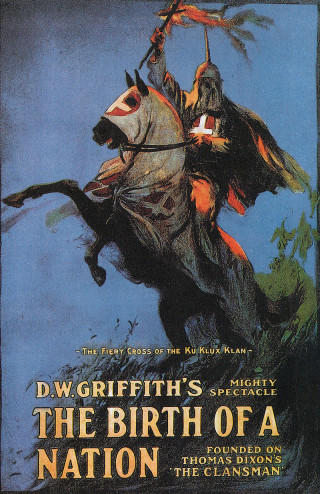After the Civil War and Reconstruction, a new genre of novels emerged that romanticized the Southern way of life as a way to reinvigorate Southern identity and self-confidence. Writers like Thomas Nelson Page and Joel Chandler Harris blazed new literary paths for reconciliation by inviting readers from across the nation to reimagine the South as a place of pastoral peace and virtue.
In this land, the enslaved were happy in bondage, the South was the embodiment of Christian civilization, and all the turmoil of the present moment was forgotten. These novels acted as the tip of the spear in the fight to redeem white supremacy, and in this fight, Thomas Dixon was the fiercest of warriors.
Thomas Dixon wrote his novels to set a torch to Uncle Tom’s Cabin as part of his effort to redirect the nation’s sympathy from the plight of the enslaved to the propaganda of the Ku Klux Klan. “It may shock the prejudice of those who have idealized or worshipped the negro as canonized in ‘Uncle Tom,’” Dixon said in 1903, following the release of his first novel, The Leopard’s Spots. “Is it not time they heard the whole truth?”
Dixon’s stories both narrated the white violence of the South and reinvigorated that violence in the new century. Both the violence Dixon narrated and the violence he inspired testify to the reality that any serious consideration of reparations must include the white terrorism that defined slavery’s afterlife.
The Leopard’s Spots: A Romance of the White Man’s Burden—1865–1900 and The Clansman: An Historical Romance of the Ku Klux Klan are the first two installments of Dixon’s trilogy on Reconstruction. This trilogy attempted to enable the nation to see the post-Civil War world through Southern eyes and to create a national solidarity behind white Christianity, chivalry, and civilization. Buttressed by both academic histories and the racial sciences, the repeated theme of the trilogy is that without the positive influence and beneficent care of slave masters, Black Americans started to degenerate following emancipation. As freed people devolved, they came to pose an existential threat to America’s democracy and racial purity, forcing the pious South to arise and protect their way of life through virtuous acts of violence.

